
By Alisa Rutherford-Fortunati:
 Sitting in my office in downtown Boston I stared out the frosted glass and dreamt of Italy. A small farm filled with animals wandering in green pastures, clucking at my heels, waiting eagerly to have grain and hay thrown into their troughs. One more month, and I would be volunteering on a small organic dairy farm nestled in the pristine Italian countryside.
Sitting in my office in downtown Boston I stared out the frosted glass and dreamt of Italy. A small farm filled with animals wandering in green pastures, clucking at my heels, waiting eagerly to have grain and hay thrown into their troughs. One more month, and I would be volunteering on a small organic dairy farm nestled in the pristine Italian countryside.
While I had been a vegetarian for five years at that point, I loved cheese, and the idea of being as close to the source as possible was enticing. I wanted to know where my food came from, to be part of its growth and life. What could be more idyllic than to live my life by the chimes of the church bell and oscillating calls of impatient cows?
When I first arrived, the farm was everything I had hoped for. Each morning I awoke to the church bells I had dreamed of. After a classic European breakfast, complete with fresh milk, I trudged up the hill to clean out the cow and goat stalls, and feed the chickens. Then, if the weather suited, I would go for a walk in the woods with the goats, or down to the pasture with the cows. It was serene.
The story I truly want to tell you though is about one cow in particular, a cow to whom I owe a great deal:
Bruno.
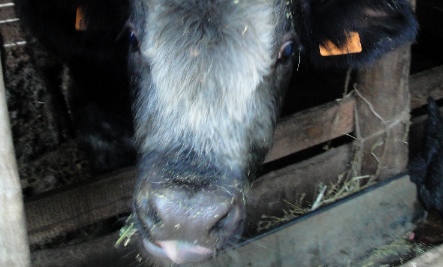
The first time I met this funny cow, I had to jump out of the way as he attempted to lick my jacket. Once, when I was distracted, his tongue caught me on the arm. I would later compare the sensation to being licked by a wet Brillo Pad.
Bruno never walked down to the grazing pasture with us because he was a bull and too unpredictable, but each morning he waited impatiently for his share of milk, alongside a female cow who was pregnant with her first calf and Max, a smaller variety of bull.
I loved giving them their morning milk. Never once did I question the inherent strangeness in taking the milk from Max’s mother, and the other two lactating cows, walking 100 feet and then feeding a portion of this milk out of a bottle to Max and out of a trough to Bruno. They were simply adorable animals that I was thrilled to feed.
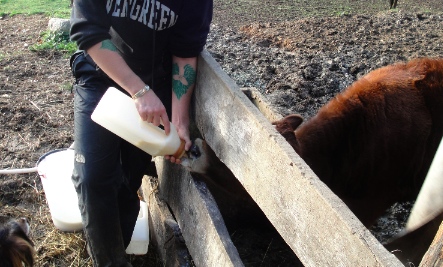 These cows were “lucky” that they even got milk, although at times it was partially powdered or had an egg in it when there was not enough milk for both us and them.
These cows were “lucky” that they even got milk, although at times it was partially powdered or had an egg in it when there was not enough milk for both us and them.
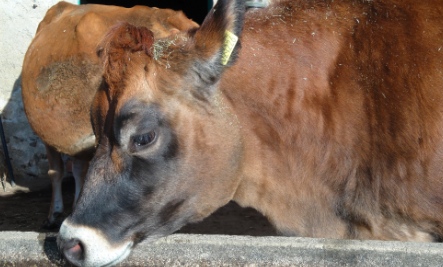
Life went on like this for a month and a half. And then a piece of paper entitled “Bruno” started floating around the house.
– Paul 50 Kg
– Nichole 125 Kg
– Lupo 25 Kg
They were dividing up Bruno’s body for consumption. My host, who was a vegetarian, said it was her least favorite part of owning a dairy farm. She had warned me, before I even arrived, that she had to sell some animals to pay for the care of the others, but I never fully understood what that meant. At the time I spoke of praying for their souls and being glad they had lived a good life; a happy life.
After another two weeks, the list was complete. My host said that the following Saturday, a friend would be coming to help her move Bruno to a temporary holding stall before he was put in the butcher’s truck.
As Saturday morning approached, my fellow volunteers and I waited eagerly to see if Bruno would put up a fight. He still had his horns and had quickly grown to a hefty size under our care.
My host and her friend took off up the hill, their breath hanging in the air above the slowly rumbling tractor. Those of us left in the house waited for the sound of the tractor to disappear and then paced, paused and pondered its return. The time seemed to drag on forever. Finally we heard the tractor slowly descending. As it rounded the bend, we saw that there was no fighting bull, no struggle. Bruno, tied to the tractor, slowly walked behind, calmly being led by someone he trusted. We were the only mothers he had ever really had the chance to know. Why would he put up a fight? Why would he distrust the hands that fed him and scratched his chin?
The next morning he was gone.
A day later, his body came home in pieces. Being a vegetarian at the time, my host did not ask if I wanted to try the meat I had helped to “raise”, but my fellow volunteers were asked if they wanted to have hamburgers that night. They hesitated, which was one of the few things at the time that made the acid in my stomach turn. If they could eat meat in general, why couldn’t they eat an animal they had helped to raise? They finally relented and dined on Bruno that night.
As I left the house that evening, the smell of hamburger still clinging to my clothes, I almost tripped over a long white object lying in the driveway. It was Bruno’s spine, left as a treat for the dogs. Tiny bits of pink flesh were still clinging in between the vertebrae. I could not connect this piece of flesh and bone to the animal I had loved. Instead, I simply turned away, went into my room, and fell asleep.
I awoke the next morning and wrote to family and friends how his death had not bothered me – a lie, although I knew it not at the time. I wrote that “I will be a veggie until the day I die, but living and working on this farm has allowed me to accept death as a natural part of life.”
It took me months to realize that I shut down that night, that to simply turn away from the bones of this animal – an animal I had loved and cared for – meant turning off a part of myself. My willingness to accept his death as a “natural part of life” signaled that I had yet again pushed away the essential understanding that I was born with, that we are all born with: Life is precious and not ours to take.
This understanding seems so simple now that it appears ridiculous to defend any other perspective. But as I know from my own life experience, it is often the things we intuitively know are wrong that we defend so vehemently.
Upon rereading my emails and blogs from this time, anger and shame well in my heart, and tears are not far behind. I realize now that I was complacent towards the existence of these creatures. I accepted the use and abuse of their bodies for my desire for milk and others’ desire for meat. And now, I find that the only way I can ask for forgiveness for my part in Bruno’s death is by telling his story.
This is not the story of a factory farm; it is the story of a beautiful farm with “free range” animals who seemed to be “happy.” They were labeled “happy” because someone cared enough about them to “minimize” the abuse of their bodies before they were killed.
Now, as I go about my life, awake and vegan, pictures of these animals float across my mind: Bruno, Ortensia (the first cow I ever saw skip with joy), Mariolana (my favorite goat struggling to carry her last kid) and Max (the smallest calf and the next to be sold for meat). I see their shining eyes eagerly waiting for me to deliver their morning milk, hoping for a bit of green hay or a scratch on the chin. I know these were animals capable of being happy and that they had this chance stolen from them.
By Alisa Rutherford-Fortunati is a Veganic Grower and Educator for Gentle World — a vegan intentional community and non-profit organization dedicated to educating the public about being vegan. Visit www.GentleWorld.org for more information.

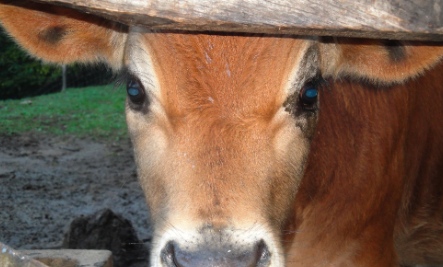
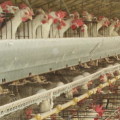

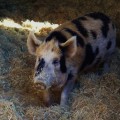
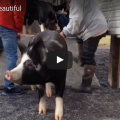
3 Comments
happycowgirl (37 comments)
July 30, 2011 at 12:22 pmEvery human on the planet should read this article. So well-written. It gave me chills.
Although your fellow volunteers relented and ate the burgers made from Bruno’s body, we can only hope they returned home and eventually “made the connection”. As Cleveland Amory once said, people have an infinite capacity to rationalize their cruelty, especially when it comes to something they want to eat.
glen smith (6 comments)
August 2, 2011 at 10:43 amhell in a hamburger
There is, it seems, a certain amount of suffering that is inevitable for all sentient beings, and this saddens me, but that which is inflicted needlessly, and with impunity, upon the innocent, defines absolute hell on earth.
Let’s all stop exploiting and killing our animal friends. If we deserve a life free from fear and persecution, so, indeed, do they!
Chia (324 comments)
August 3, 2011 at 10:24 amThank you for sharing this article.